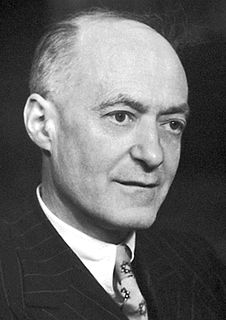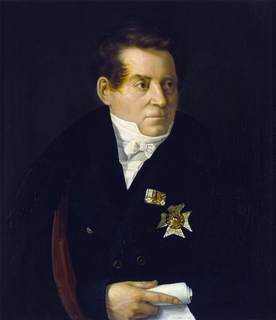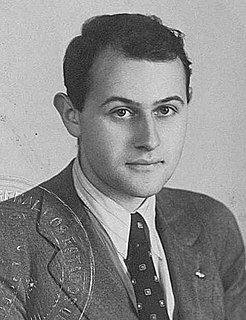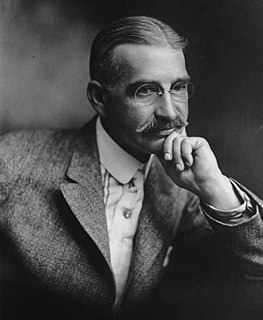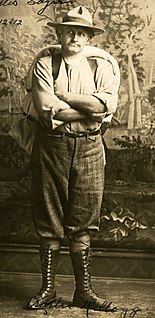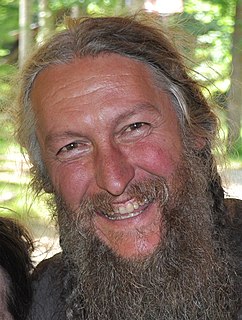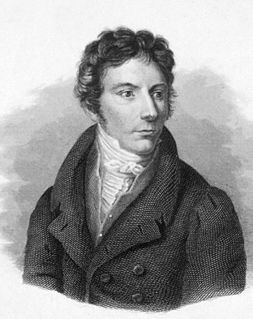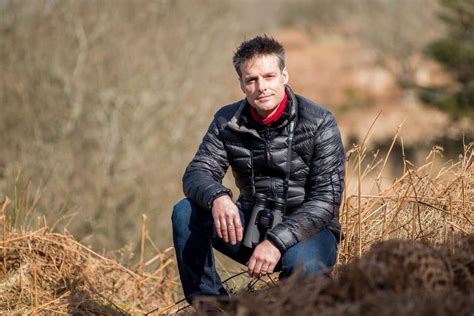A Quote by Alexander von Humboldt
Our imagination is struck only by what is great; but the lover of natural philosophy should reflect equally on little things.
Related Quotes
The most perfect philosophy of the natural kind only staves off our ignorance a little longer: as perhaps the most perfect philosophy of the moral or metaphysical kind serves only to discover larger portions of it. Thus the observation of human blindness and weakness is the result of all philosophy, and meets us at every turn, in spite of our endeavours to elude or avoid it.
Where philosophy ends, poetry must commence. There should not be a common point of view, a natural manner of thinking which standsin contrast to art and liberal education, or mere living; that is, one should not conceive of a realm of crudeness beyond the boundaries of education. Every conscious link of an organism should not perceive its limits without a feeling for its unity in relation to the whole. For example, philosophy should not only be contrasted to non-philosophy, but also to poetry.
The natural sciences are sometimes said to have no concern with values, nor to seek morality and goodness, and therefore belong to an inferior order of things. Counter-claims are made that they are the only living and dynamic studies... Both contentions are wrong. Language, Literature and Philosophy express, reflect and contemplate the world. But it is a world in which men will never be content to stay at rest, and so these disciplines cannot be cut off from the great searching into the nature of things without being deprived of life-blood.
we can't afford to do anyone harm because we owe them our lives each breath is recycled from someone else's lungs our enemies are the very air in disguise you can talk a great philosophy but if you can't be kind to people every day it doesn't mean that much to me it's the little things you do the little things you say it's the love you give along the way
The task of a philosophy of photography is to reflect upon [the] possibility of freedom - and thus its significance - in a world dominated by apparatuses; to reflect upon the way in which, despite everything, it is possible for human beings to give significance to their lives in the face of the chance necessity of death. Such a philosophy is necessary because it is the only form of revolution left open to us.
Our design, not respecting arts, but philosophy, and our subject, not manual, but natural powers, we consider chiefly those things which relate to gravity, levity, elastic force, the resistance of fluids, and the like forces, whether attractive or impulsive; and therefore we offer this work as mathematical principles of philosophy; for all the difficulty of philosophy seems to consist in this from the phenomena of motions to investigate the forces of nature, and then from these forces to demonstrate the other phenomena.
Should a reasonable person not demand that philosophy should not be foolishly purveyed before people incompetent to see the point of it, as pearls before swine? For Nietzsche is utterly correct: philosophy is only for the healthy and whole-minded, the sick it has always only made even sicker. By means of philosophy they dig themselves even deeper into their pathetic delusions.
What ever the course of our lives, we should recieve them as the highest gift from the hand of God, in which equally reposed the power to do nothing whatever for us. Indeed, we should accept misfortune not only in thanks, but in infinite gratitude to Providence, which by such means detaches us from an excessive love for Earthly things and elevates our minds to the celestial and divine.
I think the world is like a great mirror, and reflects our lives just as we ourselves look upon it. Those who turn sad faces toward the world find only sadness reflected. But a smile is reflected in the same way, and cheers and brightens our hearts. You think there is no pleasure to be had in life. That is because you are heartsick and-and tired, as you say. With one sad story ended you are afraid to begin another-a sequel-feeling it would be equally sad. But why should it be? Isn't the joy or sorrow equally divided in life?



